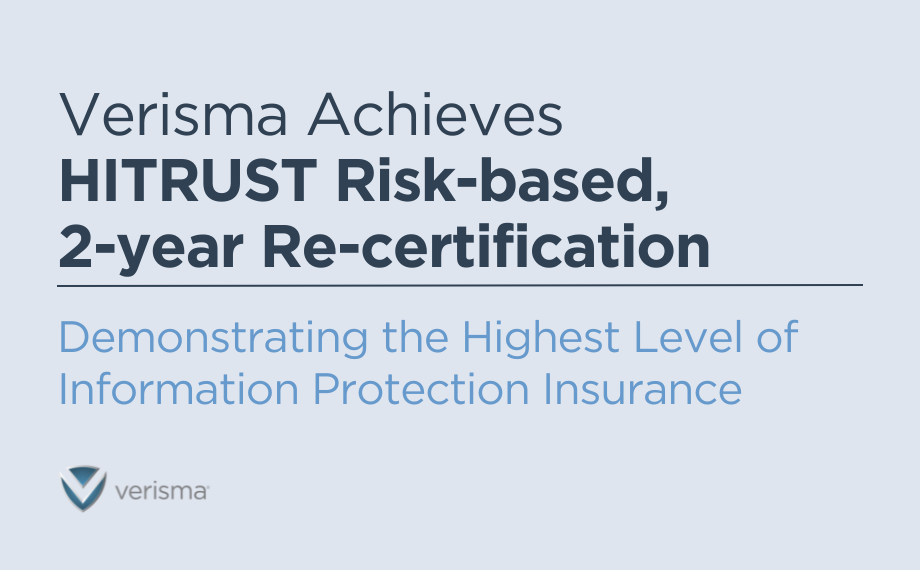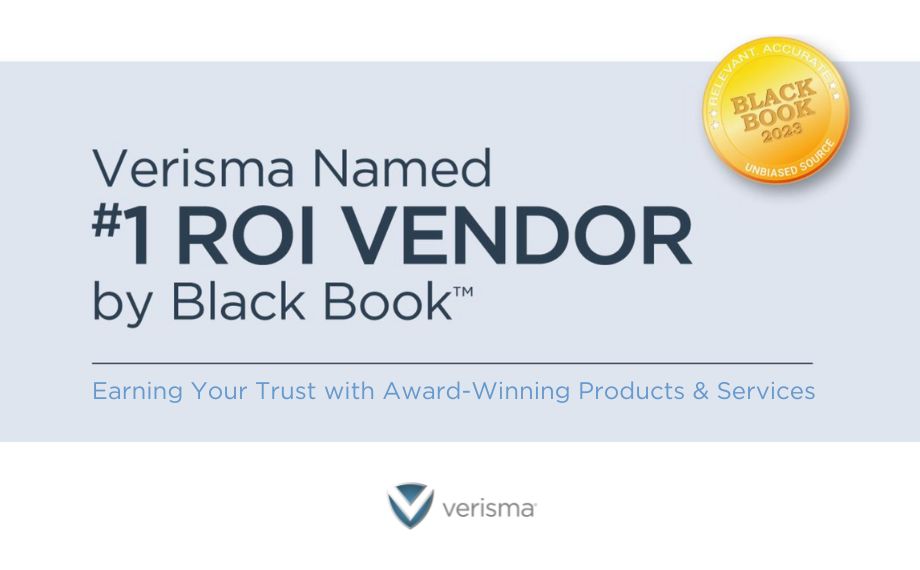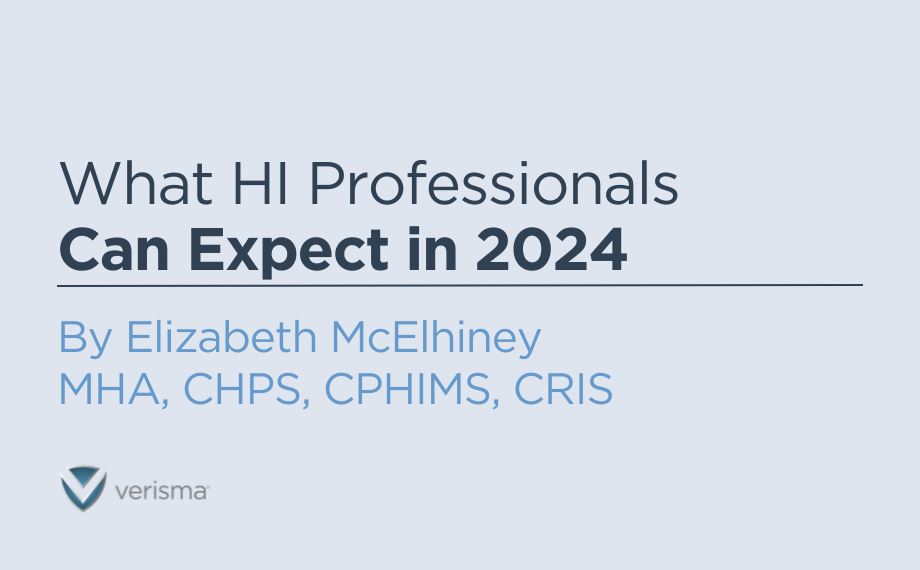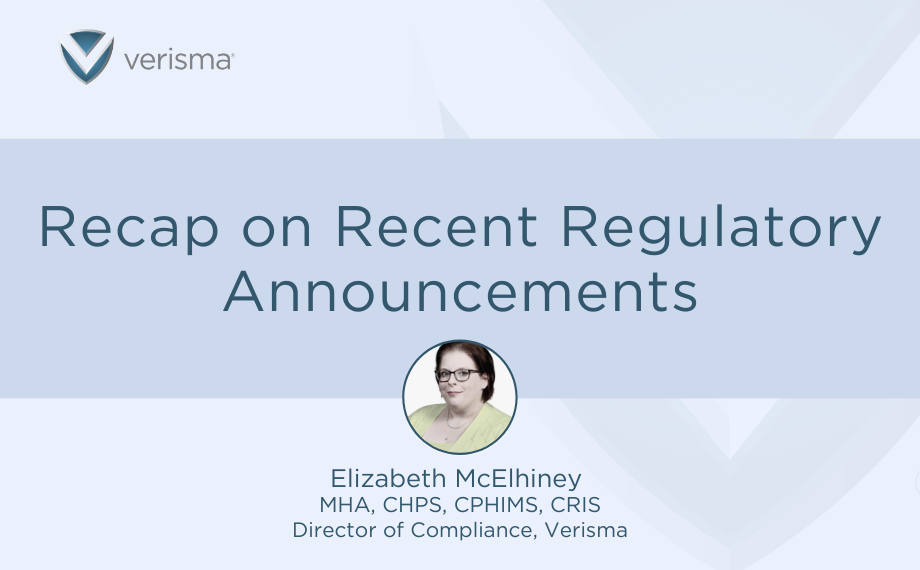
Verisma Achieves HITRUST Risk-based, 2-year Re-certification Demonstrating the Highest Level of Information Protection Assurance
HITRUST Risk-Based, 2-year (r2) Certification validates Verisma® is committed to strong cybersecurity and protecting sensitive data.
Alpharetta, GA, February 9, 2024 – Verisma, a leading provider of health information solutions, today announced its flagship technology, Verisma Release Manager®, has earned its HITRUST Risk-based 2-year (“r2”) re-certification status for information security. This includes the underlying Azure hosting environment as well as supporting features such as Verisma Release Application®, Verisma AnalyticsTM, Verisma SpotlightTM, Verisma InboxTM, Verisma Technology Assisted ReviewTM (TAR), and the ROIS application.
HITRUST Risk-based, 2-year (r2) Certification, first earned by the company in 2021, demonstrates that the organization’s Verisma Release Manager® platform has met demanding regulatory compliance and industry-defined requirements and is appropriately managing risk. This achievement places Verisma in an elite group of organizations worldwide that have earned this certification. By including federal and state regulations, standards, and frameworks and incorporating a risk-based approach, the HITRUST Assurance Program helps organizations address security and data protection challenges through a comprehensive and flexible framework of prescriptive and scalable security controls.
“Organizations like ours are continually under pressure to address current and emerging threats and meet complex compliance, information protection, and privacy requirements,” said Marty McKenna, Chief Executive Officer at Verisma. “We are pleased to demonstrate to our customers the highest standards for data protection and information security by achieving the rigorous HITRUST r2 Certification.”
“Without consistency, transparency, and reliability, an information security assessment can’t provide the requisite level of assurances needed to make important business decisions. That’s why we focus on producing the highest quality reports available,” said Vincent Bennekers, Vice President, Quality at HITRUST. “Achievement of a HITRUST r2 Certification is an assurance that Verisma takes compliance and information risk management seriously.”
About Verisma®
Verisma’s leading technology and solutions empower healthcare providers to streamline the exchange of protected health information that facilitates value-based care programs, bridges gaps in care coordination and supports legal proceedings. Verisma’s HITRUST®-certified technology enhances interoperability to deliver cutting-edge release of information (ROI) and care coordination solutions that adhere to the highest standards in data security and patient protection.




